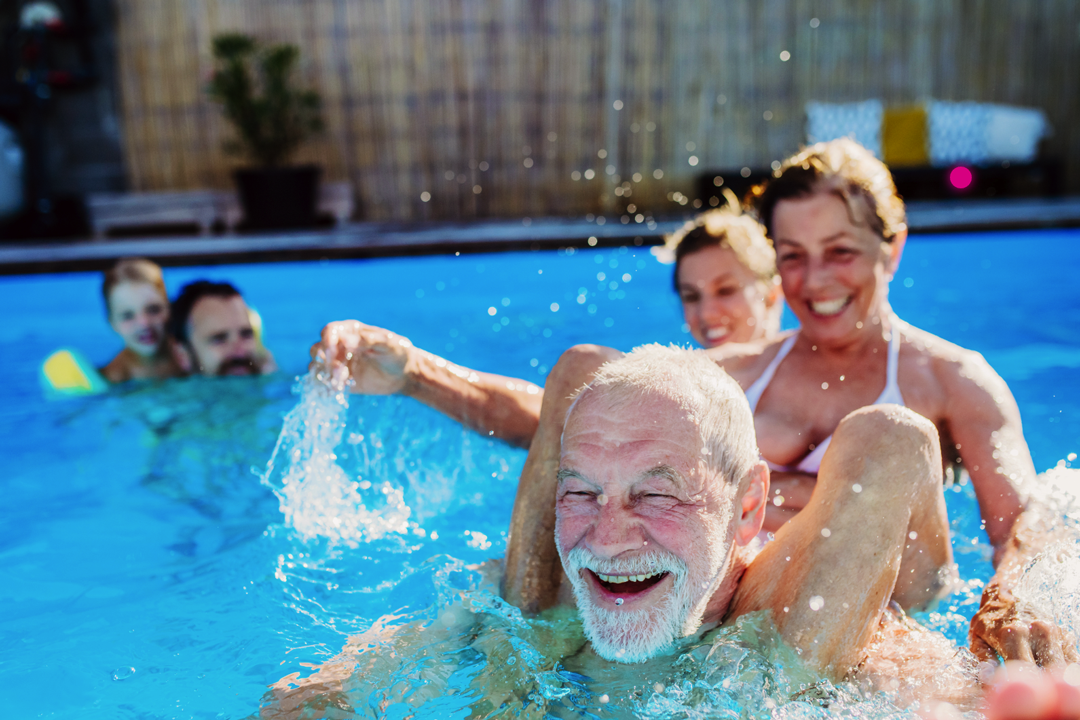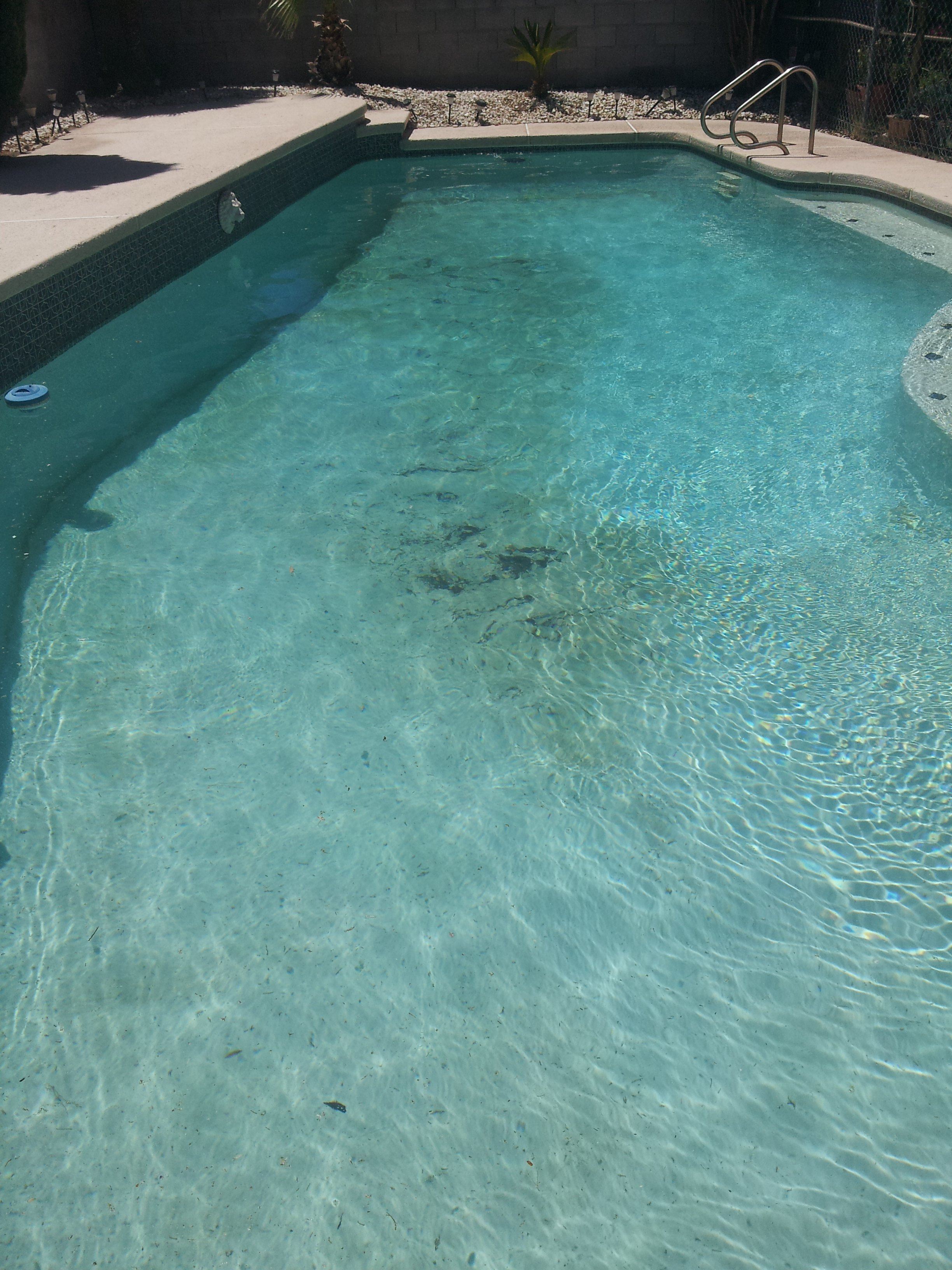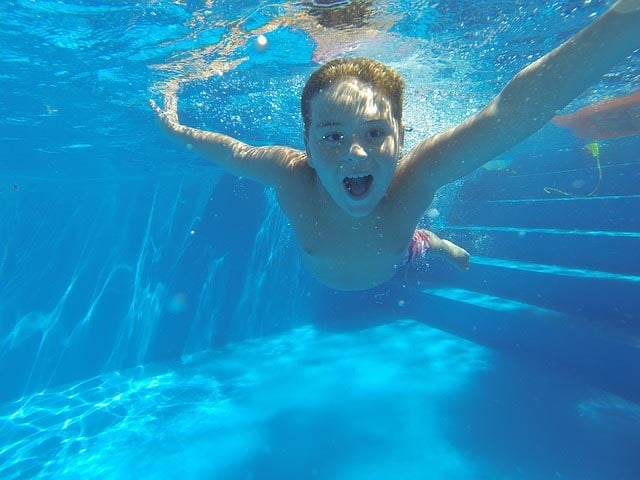What Is Better Chlorine or Bromine?
Chlorine and bromine are two, popular sanitizers for swimming pools. Although they are both effective in disinfecting and killing bacteria and algae, they differ in how they work and the procedures necessary for effective use. Homeowners considering chlorine or bromine can decide which sanitizer to use based on the following questions:
A. Is it an outdoor or indoor pool?
B. If an outdoor pool, is it surrounded by shady trees, or is it exposed to direct sunlight?
C. How much time and attention is the owner able to devote to pool maintenance?
D. What is the frequency and extent of use of the pool?
E. Are there budgetary limits?
Below are comparisons between chlorine and bromine on eight, important factors to help you decide which sanitizer is most suitable for your swimming pool.
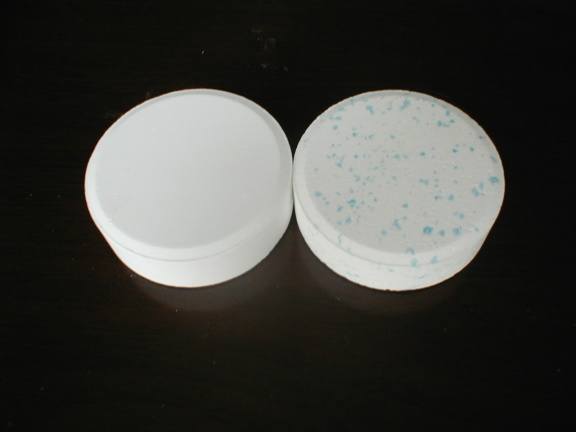
1. Cost
Chlorine comes in different forms: 1” or 3” tablets, sticks, granular and liquid. Tablets and sticks can be placed in floaters or automatic feeders for continuous sanitizing. Granular chlorine dissolves rapidly but has less available chlorine per pound and is more expensive. Liquid chlorine is convenient for the busy homeowner because it can be poured directly into the pool.
Bromine comes only in 1” tablets. It is more expensive than chlorine, but takes longer to dissolve and continues to sanitize even after oxidized. Therefore, the cost difference becomes negligible after a period.
Looking at prices at a popular online sales site, we can directly compare prices of chlorine and bromine tablets at the 25 lb. and 100 lb. levels. For 1” bromine tablets, the costs are $115 and $400; for 1” chlorine tablets, the costs are $100 and $330; for 3” tablets, $75 and $240. Therefore, the initial costs of bromine will be much higher, but if chlorine is used more frequently, the cost difference will cancel after a period. The price differences also show why the 3” tablets are most popular.
2. Efficiency
3” chlorine tablets are most often used by homeowners because they cost less, dissolve slowly and require less maintenance. They can be placed in a feeder that floats in the water. It releases small amounts of chlorine for about a week. The feeder or dispenser prevents discoloration of the pool’s surface and corrosion damage to the water circulation system.
For fast action, granular chlorine can be pre-dissolved and diluted in a pail of water and be added directly into the pool. Or liquid chlorine can be poured into the pool. These forms of chlorine are useful for quickly adjusting the pH level when needed.
Bromine tablets take longer to dissolve and require a flow of water for it to dissolve; a special bromine feeder is needed for this purpose. But unlike chlorine; which becomes inactive as it combines with bacteria and other contaminants to form chloramines, bromine remains active after the combining action when formed into bromamines.
3. Odor
The chloramines leftover after chlorine attacks contaminants emit a strong odor. Chloramines remain on the skin and swimwear. Swimmers complain of dry skin, or a tightening sensation on their skin, when they get out of the pool. This is especially the case when the pool is heavily-used and contains human perspiration. However, if the pool is well-maintained and shocked regularly, the smell decreases.
Bromine, on the other hand, has little or no odor. Whatever smell it leaves behind on skin or clothes is harder to wash off, though.
4. Which Lasts Longer?
Bromine dissolves slower than chlorine. Its residue requires less chemical to be added into pool water over time. The bromamine that is produced after bromine disinfects water continues to sanitize as long as new bromine is being continuously added to the water. Bromamines are restored to full strength through a pool shock treatment.
Chlorine dissolves much faster than Bromine. The 3” tablets in the floating feeder need to be replaced weekly. With different types of chlorine available, homeowners have a wide selection of products.
5. Hot Tub or Pool
Sanitizing hot tubs means cleaning a smaller amount of water with higher temperatures and greater concentrations of pollutants, thus requiring more frequent monitoring and sanitization. Because of these features, bromine is an almost unanimous choice. The advantages of bromine over chlorine are:
• more effective at higher temperatures
• accommodates a wider pH range
• less smell
• kinder on sensitive skin
Indoor pools share a high risk of chlorine inhalation with hot tubs. For this reason, homeowners favor bromine over chlorine.
6. Health Risk
Chlorine is absorbed by inhalation, and through the skin. It can cause a number of health problems ranging from sore throats, coughs, skin irritation, eye irritations, “swimmer’s asthma” and “swimmer’s erosion”—a wearing away of tooth enamel. The most serious problems are risks for frequent swimmers in indoor pools that are often over-chlorinated. Children are more susceptible to the health risks from chlorine because their young bodies absorb it more readily. An outdoor pool that is well-maintained provides less risk, but can still irritate skin, eyes and hair if the pool is not kept chemically balanced.
Chlorine in concentrated form is dangerous. Proper storage, handling and use must be observed.
Bromine is easier on the skin, and is usually selected by folks with sensitive skin or eyes.
7. Impact on Environment
Imagine that swimming pools are their own, mini eco-systems that have little effect on any surrounding eco system. While chlorine is harmful to organisms living in water and soil, pool water is contained, per say, by its walls. As such, the chlorinated pool water has little effect its neighbor: the rest of your yard. Also, since the composition of pool water is similar to tap water from an urban city water system, its not that much different from what we use water the lawn, believe it or not. Remember that next time you take a swig from your hose on a hot summer day!
8. Need Service to Switch?
A chlorine pool can readily be switched to bromine by adding bromine tablets in a special bromine feeder. The switch process requires draining and a thorough cleaning of the entire pool, because any trace of bromine remaining will render chlorine addition ineffective. Most homeowners will hire a professional pool cleaning service for this complex task.
Is Chlorine or Bromine Better for Me?
A. If you have an indoor pool, you want to avoid chlorine fumes . Use bromine. If you have an outdoor pool, chlorine is cheaper, easier and more flexible. That said, if you or your family suffer from skin sensitivity, or watery eyes, bromine is the better option.
B. If your outdoor pool is exposed to direct sunlight on a daily basis, bromine doesn’t break down as easily as chlorine, thus doesn't sanitize as effectively. There are stabilizing chlorine products that you can add to slow its decomposition. If the pool is surrounded by trees and plants, you'll be using your pool skimmer often and manually unclogging your pool lfilter, but the shade offered by trees actually helps extend the life of your chlorine tablets.
C. In general, chlorine is more work and more time-consuming. Using chlorine means frequent testing for chloramines and pH levels. However, chlorine dissolves quicker and thereby reduces the time needed for bringing the water to the desired chlorine and pH levels. Bromine is more forgiving...a few days of neglect will not affect the level of bromine in the water as it would chlorine. Bromine sanitization is more complex and needs to be set up properly to be effective.
D. If the pool is used frequently, and by many different people, it needs to be sanitized more often.
E. In the short term, chlorine is much cheaper, especially in the 3” tablet form. When you are looking at several years of usage, using bromine long-term outweighs the short-term savings of chlorine.
Consult our pool expert, Mickey Bleeker at Alpha and Omega Pool Services LLC, for an informed opinion on what is best for your pool. He can be reached directly at 702-560-7665.
Call for Free Estimate! 702-560-7665

To request service or receive a free estimate, please fill out the form below and we will get in touch with you shortly.

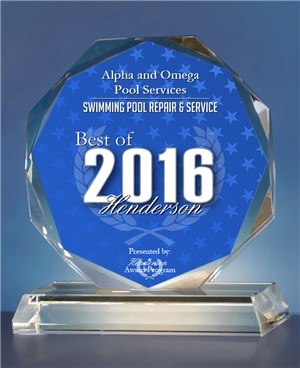


We Are Licensed and Insured!
Nevada State Business License: NV20091621874
Insurance License: #0510559
.png)
